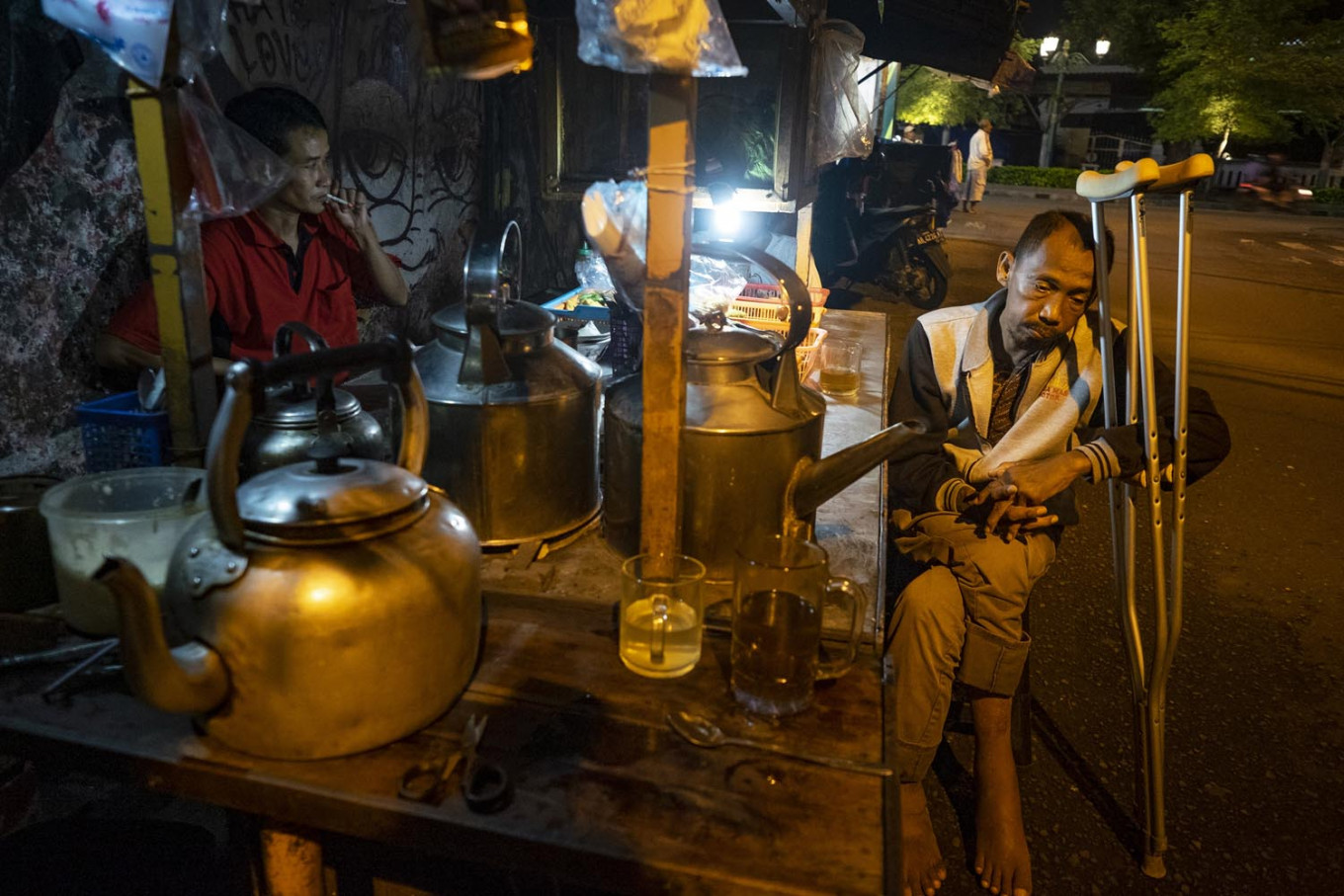Popular Reads
Top Results
Can't find what you're looking for?
View all search resultsPopular Reads
Top Results
Can't find what you're looking for?
View all search resultsGovt. channels Rp 11.84t to MSMEs and cooperatives, admits slow disbursement
The government aims to disburse all the funds by September, expecting to accelerate spending with the issuance of the Finance Ministry's budget execution lists (DIPA).
Change text size
Gift Premium Articles
to Anyone
T
he government has channeled Rp 11.84 trillion (US$809.1 million) from the COVID-19 stimulus package to small businesses and cooperatives as of Tuesday but conceded that it had been slow in disbursing the funds.
More than 1 million micro, small and medium enterprises (MSME) and cooperatives will receive the stimulus, Cooperatives and Small and Medium Enterprises Ministry data showed.
The disbursement is part of the government’s national economic recovery (PEN) program, which will allocate Rp 123.46 trillion to aid small businesses and cooperatives amid the ongoing health crisis. Tuesday’s figure made up only 9.59 percent of the total budget.
“We acknowledge the slow progress,” the ministry’s secretary Rully Indrawan said in a statement on Tuesday. “We are still trying to identify the obstacles. The program’s introduction to the public has not been going very well.”
According to ministry data, most of the stimulus was disbursed through state-owned banks in the form of debt restructuring funds, Rp 381.4 billion went to investment funds for 34 cooperatives through the Revolving Fund Management Agency (LPDB), while the remaining was used for interest subsidies for MSMEs via the microcredit program (KUR).
He added that the government aimed to disburse all the funds by September, expecting to accelerate spending with the issuance of the Finance Ministry's budget execution lists (DIPA).
The government has been working to accelerate the disbursement of COVID-19 response stimulus funds, totaling Rp 695.2 trillion, to cushion the economic impacts of the pandemic, after President Joko “Jokowi” Widodo criticized its slow progress.
Small and medium enterprises (SME), which contribute to more than half of the country’s gross domestic product (GDP), have been greatly affected by the pandemic, as Indonesia’s economic growth slowed to 2.97 percent in the first quarter of 2020.
Finance Minister Sri Mulyani recently stated that the government was working on a plan to transfer working capital directly to MSMEs that have yet to receive access to financing from banks.
It has also disbursed credit insurance premiums worth Rp 5 trillion to state-owned credit insurers PT Jaminan Kredit Indonesia (Jamkrindo) and PT Asuransi Kredit Indonesia (Askrindo) to guarantee working capital loans of Rp 100 trillion and help MSMEs survive the pandemic.
The scheme will provide guarantees for banks that channel loans to MSMEs until November 2021, as well as cover loans with a ceiling of Rp 10 billion and a tenor of three years available for 60.6 million MSMEs from all business sectors.
State-owned Bank Mandiri, which received Rp 10 trillion in funds from the government to boost loan disbursement, is planning to increase its financing threefold in the next three months, according to Donsuwan Simatupang, the bank’s director of institutional relations.
The bank has channeled Rp 12 trillion in financing as of July 17, of which 25 percent went to 14,500 small businesses, Donsuwan said.
The bank utilizes a mobile app called Mandiri Pintar to facilitate small businesses wanting to apply for new productive microloans or top up their current productive loans.
“This loan mobile app on Android is very practical because the application process can take place anywhere and anytime.”
Tempeh seller Rasjeni, who has been selling the soy product for three decades in Depok, West Java, recently received Rp 150 million from Bank Mandiri’s KUR program.
She previously received an Rp 85 million loan from the program but had to apply for an additional loan to survive her business’s 50 percent decline in revenue as the pandemic has forced her customers, such as food stalls and vegetable traders, to temporarily close.
“Almost all of them were closed,” said Rasjeni. “But thank God, my business has recovered and now I have four employees."










